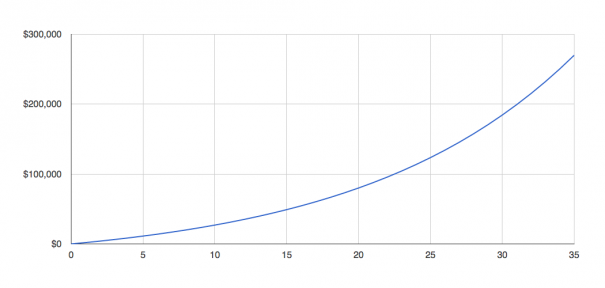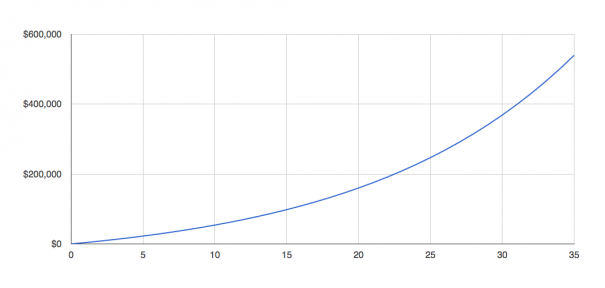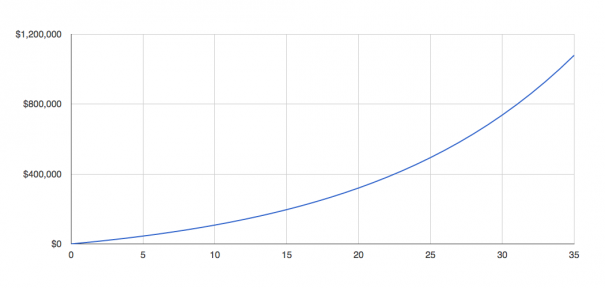It’s the Small Changes That Make You Rich

I’m gambling at a casino in the Wisconsin Dells because I told a friend I’d meet him there. I’m not a gambler but you don’t go to a casino and not gamble so I’m playing $1 roulette. Because roulette is what you play when you don’t know how to play anything.
I’m starting with $40. After a few rounds I’m up to $60, and after a few more I’m down to $50 and that’s when I tell myself I’m putting $10 on 24 because I can lose and walk away with the $40 I started with.
So I stack 10 chips on 24 and the dealer spins the wheel and the ball bounces around and around and lands on 24. Everyone at the table starts high-fiving me and then the dealer pushes $350 in chips across the table.
What do I do? I tip him $10 and walk away.
And walking away was really hard because everyone was telling me I had to stay. But I had a plan, and sticking to my plan was more important to me. Because I always have to prove to myself I have self-discipline.
It seems like every time I write about self-discipline I come to the same conclusion: It’s a muscle that needs to be exercised. And it’s a really important muscle if you want to be rich.
I see this from my coaching clients. They tell me they made $1 million over the last 10 years and they have nothing to show for it and it makes them sick. And I know they know if they don’t start making changes it will be the same thing 10 years from now.
Now, I’m not saying having money is everything. But most of us are making a choice every day between creating a future where we’re rich and creating a future where we’re poor. And the way to create a future where you’re rich is with self-discipline.
And some of my clients aren’t willing to give anything up to get what they want. So I try getting them to see that they don’t have to make big changes, just small ones. Like I tell them if they save $5 a day for 35 years that’s $64,000.
They say, “So what?” so I tell them if they invest their $5 a day and get a return of 7% then after 35 years they’ll have $270,000.

And if they save $10 a day for 35 years and invest it at 7% they’ll have $540,000.

Half a million just for $10 a day. And if they increase it to $20 a day they’ll have $1,080,000.

What I’m really trying to get them to see is if they saved $5 a day they wouldn’t have to live paycheck to paycheck and never have any options with their life. I mean, what’s $5 when people waste money on all sorts of stuff.
Like I’m reading this thread on Reddit about what people waste money on and they’re saying bottled water and strawberry top cutters and psychics and eating out every day and gambling.
So if you really want to learn self-discipline you need to start making small, manageable changes, because small, manageable changes will improve your ability to make big changes without trying as hard.
Years ago I wanted to become a minimalist. And becoming a minimalist means intentionally living with less stuff. But where do you start when you don’t know what to throw away first? One way is to stop buying new stuff so I just stopped buying new stuff.
And because I take everything to the logical extreme I’d be running out of napkins and because I couldn’t buy more napkins I’d start using paper towels and then I’d be running out of paper towels and because I couldn’t buy more paper towels I’d just wipe my hands on the kitchen towel that was always there.
Now I live without napkins and paper towels.
That might seem crazy to you because it seems crazy to me. But what I learned is that making these small, manageable changes improves your ability to change the big things. Like now I’m testing living without a car.
So I’m taking the bus and riding my bike and walking a mile to meet up with friends. And they can’t believe I walked a mile but is walking a mile really that unbelievable? I don’t know, maybe because everyone drives so no one knows how to walk anymore.
Or maybe because I don’t know how far is too far when it comes to self-discipline.
